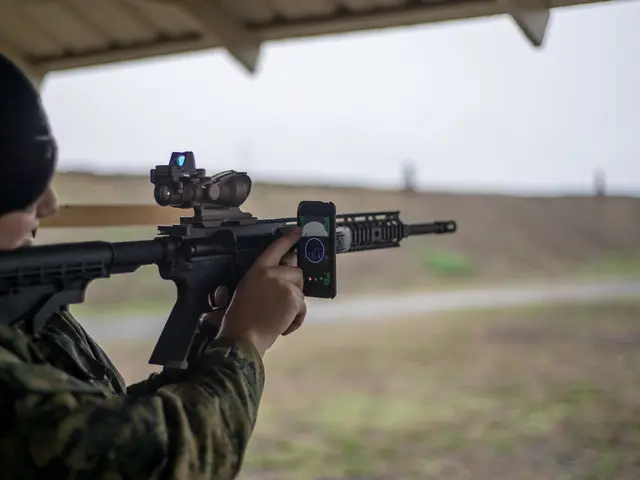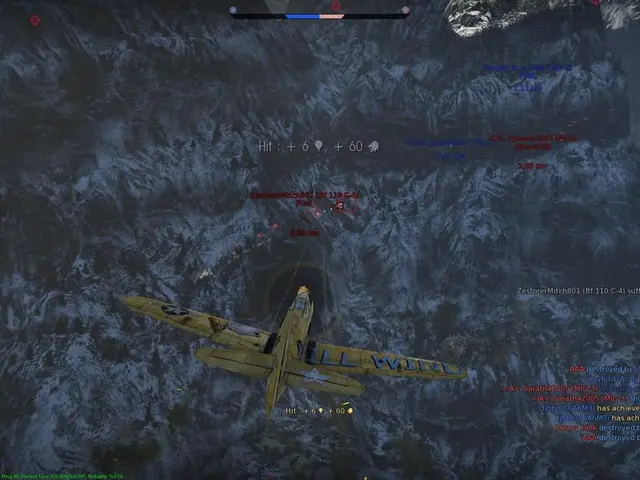Islamic Support Group (GSIM) Expands Presence in Senegal and Mauritania
Jama'at Nusrat al-Islam wal-Muslimin (GSIM or JNIM) Wants a Piece of Senegal and Mauritania
The Islam and Muslims Support Group (GSIM) is making moves to establish itself in Senegal and Mauritania, ideally snagging a slice of the pie in the shared border region of southwestern Mali. This jihadist group has been on a roll since increasing its activities in the area "exponentially," according to a new study by the Timbuktu Institute. In fact, GSIM is dominating the Sahel region, with a strong presence in Mali, Niger, and Burkina Faso. To be fair, they've been creeping into other regions, too.
Recent years have seen GSIM leverage porous borders, transborder ethnic links, inequalities, and the spread of salafism to insinuate itself into the Senegalese and Mauritanian landscapes. The strategy seems to be working quite well for them, as they've significantly boosted their violent actions in the border region between 2021 and 2024, targeting security forces, customs posts, and convoys on routes to Bamako, Mauritania, and Senegal.
Experts believe the jihadist group has a two-pronged strategy in the three-border zone aimed at encircling Bamako and extending its zone of operations into certain parts of Mauritania and Senegal. Essentially, GSIM hopes to choke off supply routes to Bamako, delegitimize the Malian authorities, and establish economic networks to fund their jihadist activities in the region.
The Timbuktu Institute's study points out that GSIM infiltrates key economic circuits, such as cattle theft, timber trafficking, and smuggling, to finance its expansion strategy. These transborder economic networks, linking Mali, Mauritania, and Senegal, aid recruitment and facilitate the transport of weapons and explosives.
While Senegal has strong points working in its favor, like social cohesion, religious moderation, and competent security forces, it's essential to raise awareness and address inequalities to effectively counter GSIM's attempts to take root. In fact, since February 20, joint Senegalese and Malian armies have been conducting patrols in the Kayes region to combat terrorism and transborder banditry, a step in the right direction.
Although large-scale attacks in Mauritania and Senegal haven't occurred yet, experts warn that GSIM's expansion risk should not be underestimated. They recommend enhanced cross-border intelligence sharing and engaging local communities to deter GSIM infiltration. While GSIM may not be its traditional enemy anymore, Mauritania and Senegal could face challenges as the group seeks sanctuaries once occupied by Barkhane operations.
- financial networks are being used by GSIM to fund their jihadist activities, as they infiltrate key economic circuits such as cattle theft, timber trafficking, and smuggling.
- With Senegal having strong points like social cohesion, religious moderation, and competent security forces, it is crucial to address inequalities to effectively counter GSIM's attempts to take root.
- The jihadist group, GSIM, is not limited to Mali's border region as they've been creeping into other regions, with a strong presence in Niger and Burkina Faso as well.
- Recent years have seen GSIM's violent actions significantly increase in the border region between 2021 and 2024, targeting security forces, customs posts, and convoys on routes to Bamako, Mauritania, and Senegal.
- Experts warn that despite a lack of large-scale attacks in Mauritania and Senegal, GSIM's expansion risk should not be underestimated, recommending enhanced cross-border intelligence sharing and engaging local communities to deter GSIM infiltration.








